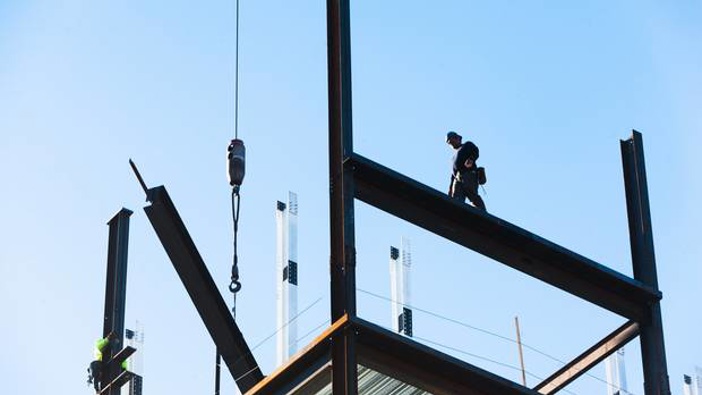Infrastructure Minister Chris Bishop announced yesterday what National had promised all the way through the election campaign. The government's new National Infrastructure Agency will be established this year, unlocking access to more capital for infrastructure and strengthening the government's private finance and commercial capability. So, from the 1st of December, Crown Infrastructure Partners is going to be reimagined and repurposed into the National Infrastructure Agency. It will be charged with acting as the Crown's shop front to receive unsolicited proposals and to facilitate private sector investment in infrastructure, partner with agencies and in some cases, local governments on projects involving private finance, administer central government funds and continue the work that CIP is already doing.
And it all sounds terribly dry, but it is actually wildly exciting. You know, to have a plan, to have a vision and more importantly, to welcome private partners to help get things moving. I cannot overemphasise how different that is from the previous administration. They believe that government could do it themselves. They had no real interest, this is a generalisation, but they had no real interest in partnering with private enterprise to do much. They believed that government knew best. With this announcement, we can see that the government is looking to the private sector to help get New Zealand cracking. They're open to the possibility that the private sector might actually have some good ideas and might actually be able to do it better and to deliver faster. And I think this is a very good thing.
I suppose it depends on where you are ideologically. If you believe that big government is best, that government can do it better (I don't know how you could believe that given the evidence, but none the less there we go, pin the colours to the mast), if you believe that that government has the answer to everything then you will look with a somewhat caustic eye at the National Infrastructure Agency. But I truly believe this is a step in the right direction.
At the moment, what we have now, the Crown Infrastructure Partner is directly responsible for overseeing 46 projects that have come from the Infrastructure Reference Group, and contracts with third parties, handling a total project value of $2.4 billion including $1.3 billon from the government. Previously it's handled the ultra-fast and rural broadband rollouts, rural mobile, marae digital connectivity and the public safety network, it’s also now managing the Cyclone Recovery program of work. Chris Bishop said the National Infrastructure Plan would provide a 30-year road map, setting out priorities for investment. So, this is the most important, then this, then this, then this. There'll be better management of existing assets, and they'll ensure value for money on new projects.
Chris Bishop plans to seek support from all parties in Parliament via the business committee to hold an annual debate on the National Infrastructure Plan to show areas where parliamentary parties agree, where we don't, and where there is room to compromise in the best interests of New Zealanders. Which is all very well and good, again, that was another campaign promise, Christopher Luxon said they would try and get cross-party support for the big infrastructure projects.
Rob Campbell's written a piece in the Herald saying that's very well and good if you share the same vision, but if you believe firmly that the environment is the most important, that the Treaty must be upheld and the principles of the Treaty must be followed all the way through any decision making, then you're not going to have the same vision as somebody who says, get that road and just plough through the graveyards, and plough through the tapu sites and off we go. So it's going to be difficult when you have people who with competing ideologies to come to a consensus.
I don't think it should be that hard. If you have got, and we've seen the feeder groups that that will assess infrastructure projects, so we've got the infrastructure reference group and then onwards and upwards, we've got groups that will sift through all the infrastructure projects they prioritise them - present them to government... surely if you allow Labour say, as the biggest opposition party, to have some representatives on the Infrastructure Reference Group, you leave it to an independent panel to say this is the most important - we need to get cracking on this one first. Otherwise, you do get the voice who shrieks loudest will get the most money. We don't want pork barrel politics where you buy votes by getting infrastructure projects put into your electorate. We don't want that. We want massive infrastructure projects that are going to take years to build to be assessed in order of importance and for them to be started not today, but yesterday. And for them not to fall victim to the three-year parliamentary cycle. It's too expensive and too important.
Take your Radio, Podcasts and Music with you










